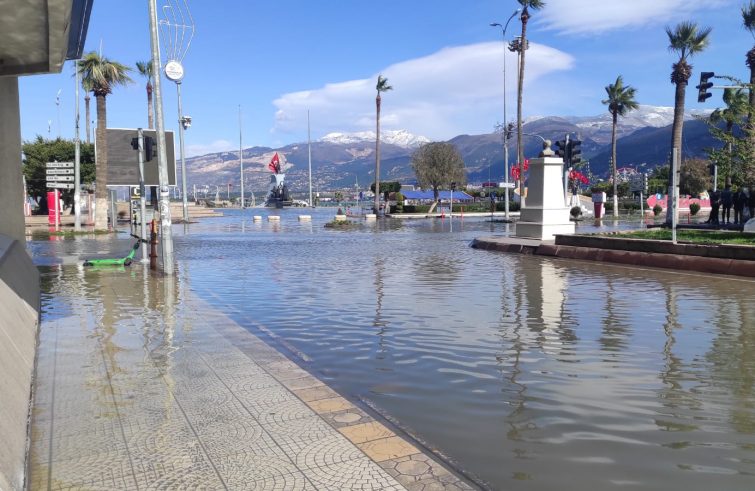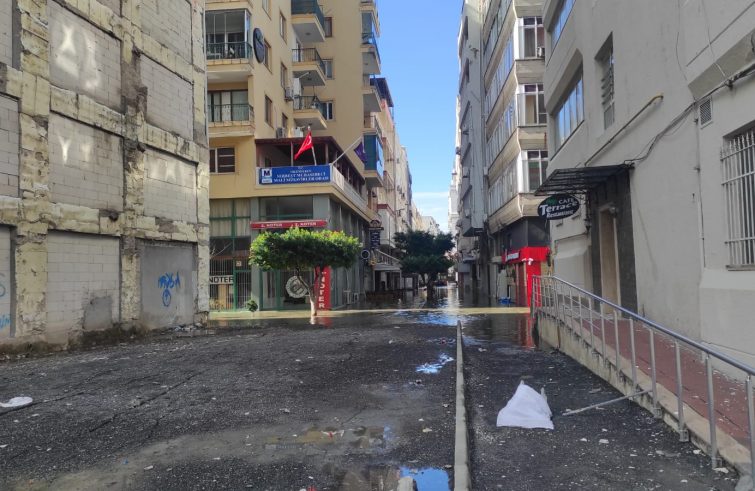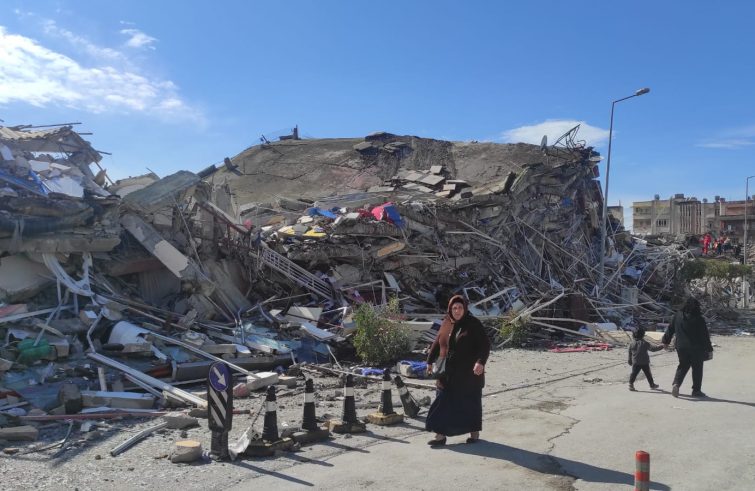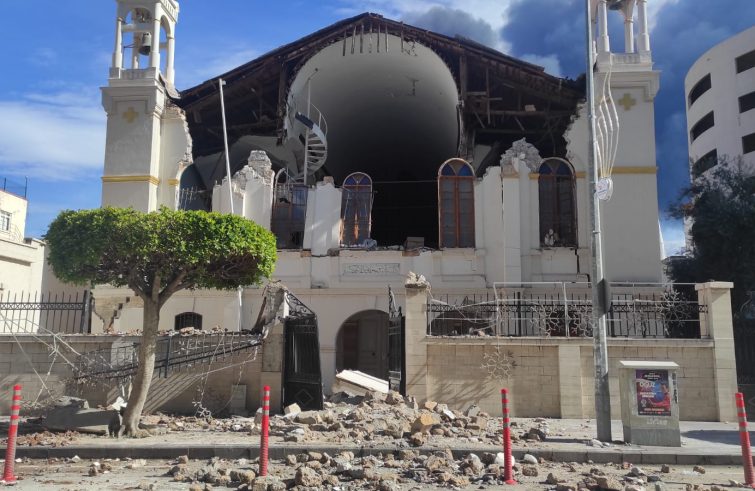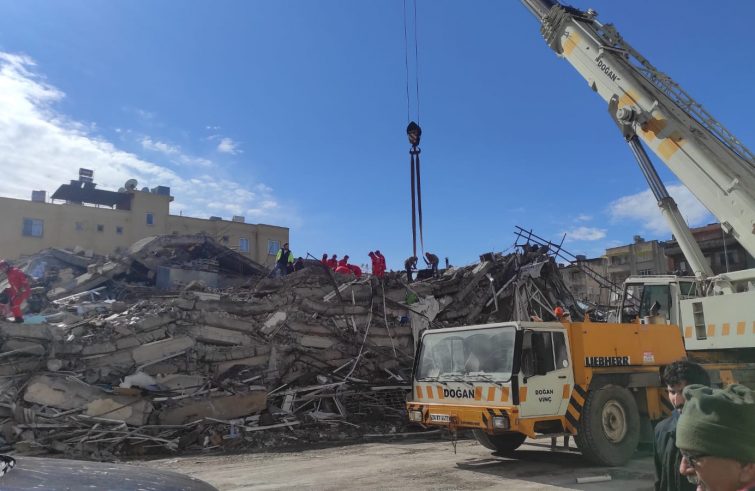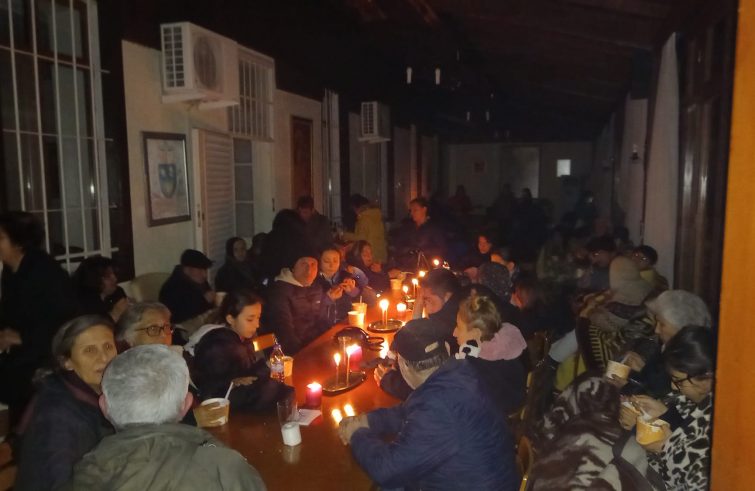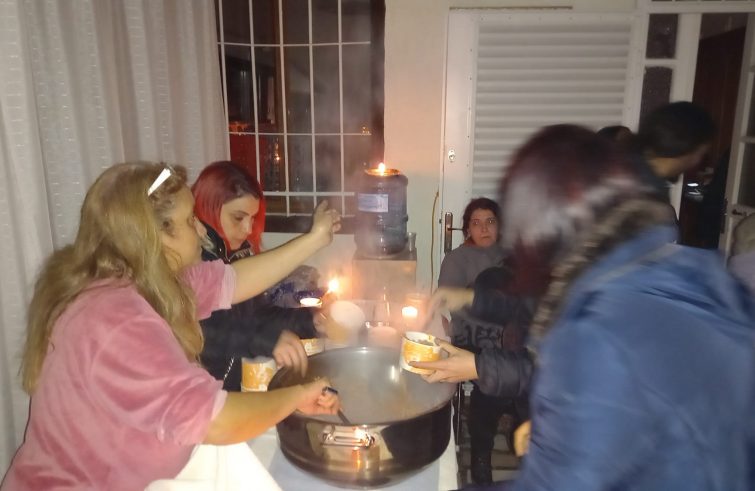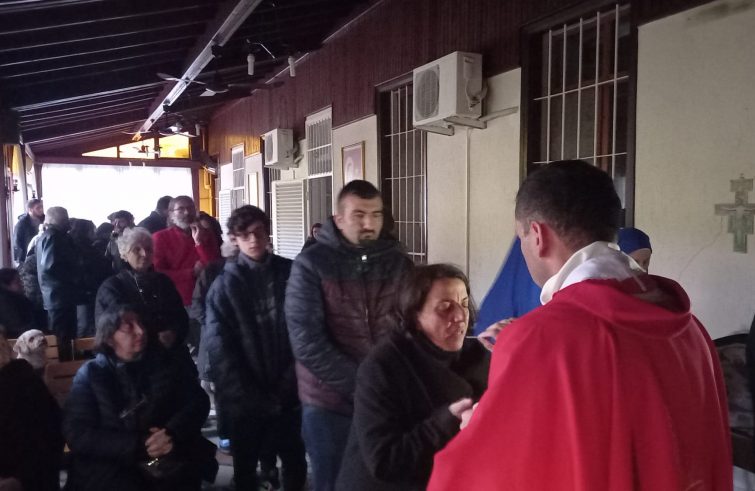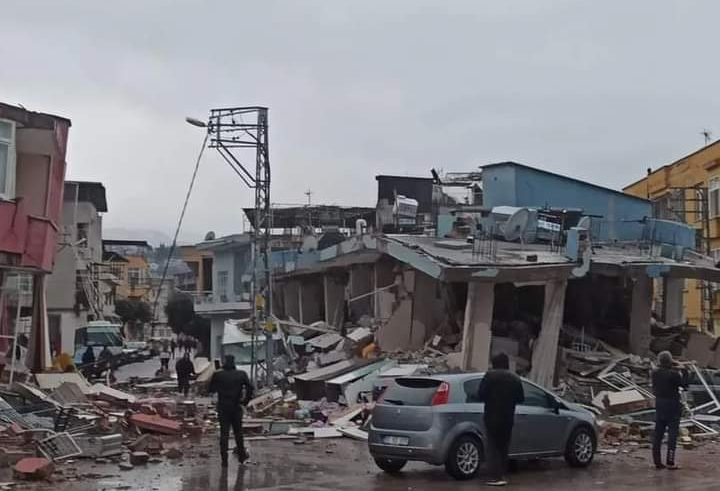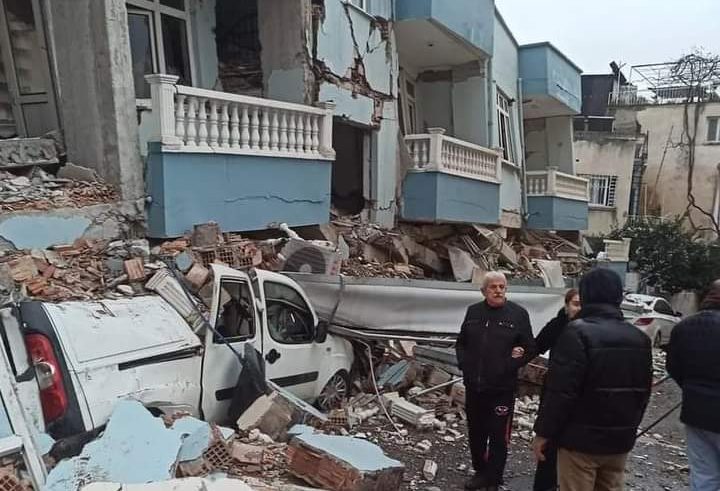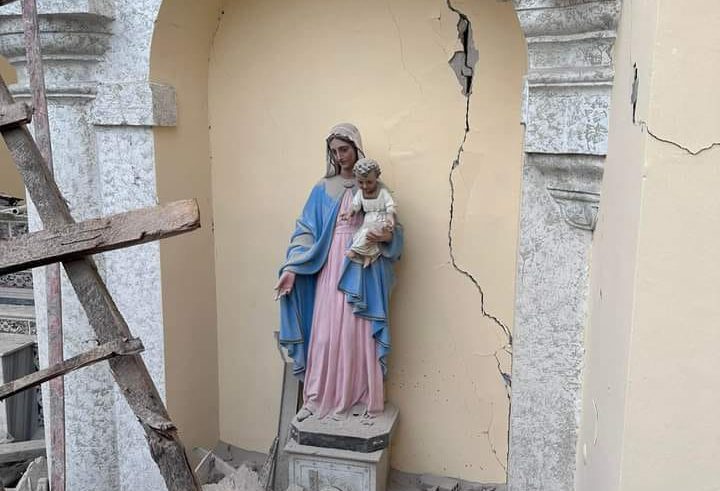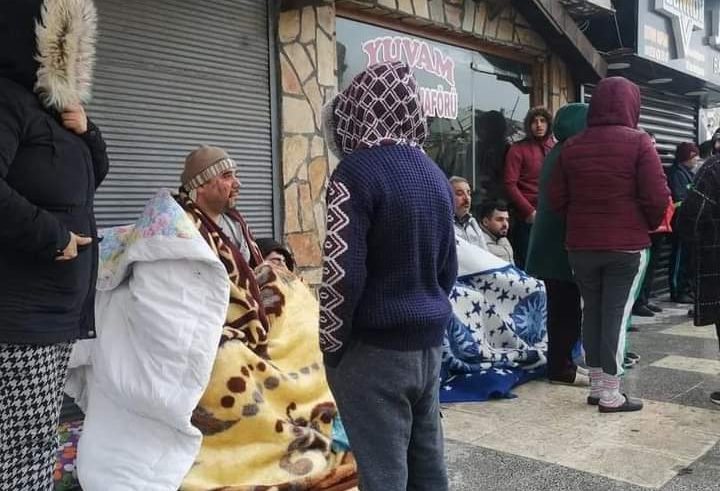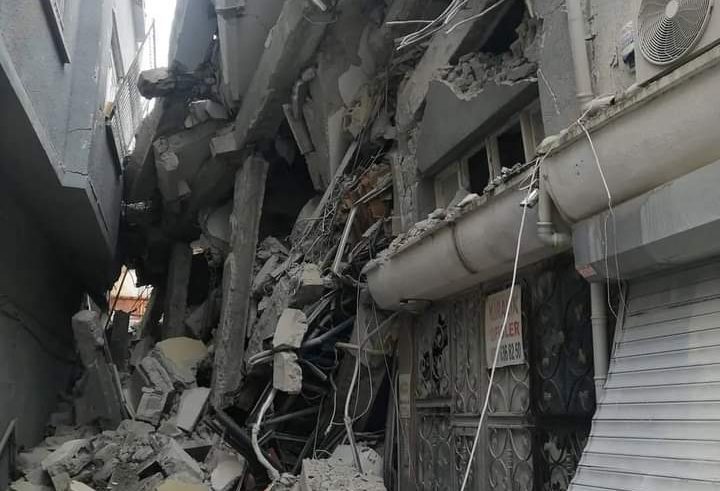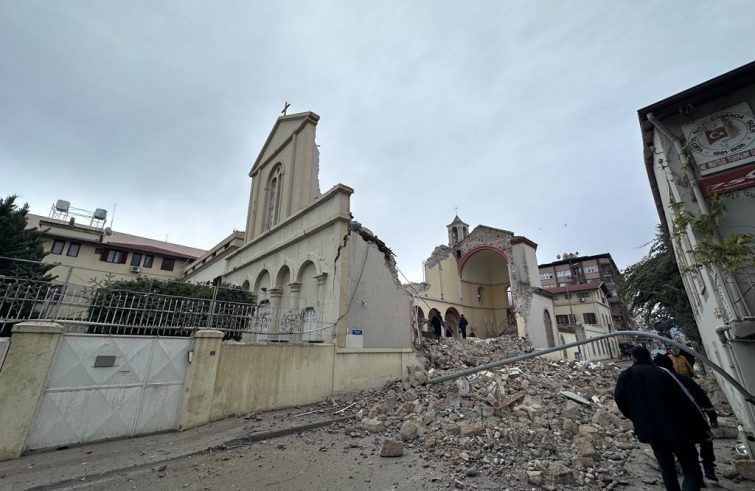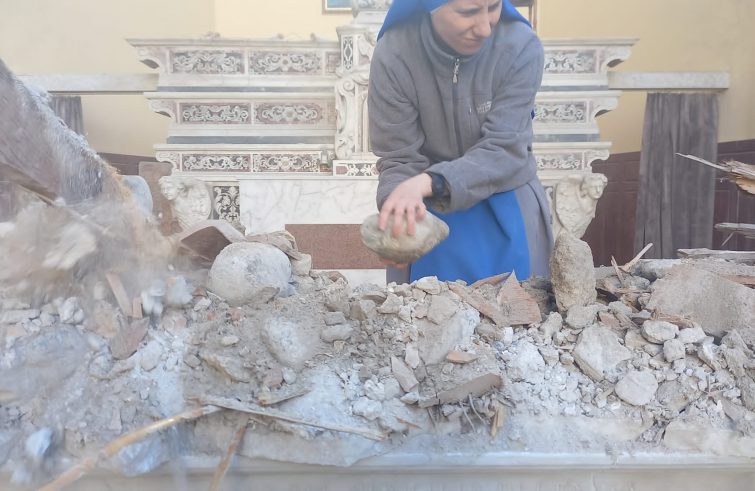
The 7.9 magnitude earthquake that hit Turkey on the night of 6 February caused sea level rise, which resulted in the flooding of the town of Iskenderun: at least 200 buildings and two hospitals collapsed. Efforts are ongoing to pull out the people left under the rubble, but it is feared that the death toll could be very high. The cathedral was destroyed completely: “Only one wall, the apse and the vestibule are still standing. Among our parishioners, the quake killed an entire family. The Orthodox church was destroyed, the Protestant pastor and his family died. Yesterday afternoon rescuers managed to save a mother with her two children, but many other houses were severely damaged.” John Farhad Sadredin, director of Caritas Anatolia, which serves almost half of the Turkish territory, was contacted by SIR in Iskenderun where he is based. The Catholic community is very small, numbering less than 120 people including Maronites, Melkites, Chaldeans and Syriacs. As of yesterday, 75 displaced persons, including the elderly, young people and children, are being sheltered in the safest areas of the bishop’s residence. Catholics, Orthodox and Muslims, without distinction, as customary for Caritas. They used to have a soup kitchen that distributed meals to 70 elderly people every day, delivering meals also to the homes of the sick.
- (Foto Caritas Anatolia)
- (Foto Caritas Anatolia)
- (Foto Caritas Anatolia)
“Right now they’re in the dining hall,” he says. “Last night we provided dinner and ate by candlelight because there is no electricity. We handed out blankets, they will be sleeping there again tonight. In our premises, located in the grounds of the cathedral, there are many rooms that were previously reserved for hospitality, but people are afraid to stay in enclosed spaces for fear of further quakes.” Sadredin explained, “the bishop’s flat and our offices have cracks, so we moved to safer areas.”
- (Foto Caritas Anatolia)
- (Foto Caritas Anatolia)
- (Foto Caritas Anatolia)
“There is no running water, no electricity, no heating since yesterday,” he continued. “It’s hard. We used to draw the water from a well but we no longer drink it because we don’t know if it is contaminated with bacteria. We are waiting for tests to be done first.” Immediate needs include “food, blankets, nappies for children and sick people, milk and personal hygiene items.” “If we managed to collect some money, we could at least pay six months or a year’s rent for the people who have lost their homes,” he added.
- (Foto Caritas Anatolia)
- (Foto Caritas Anatolia)
- (Foto Caritas Anatolia)
Volunteer workers are arriving from Istanbul to help the small Caritas centre in Anatolia. “We are figuring out the best ways to provide assistance,” he says. “I have a meeting scheduled with the deputy prefect of Iskenderun tomorrow morning to obtain permission to distribute blankets, so as not to risk violating regulations.” In fact, the Green Crescent is in charge of emergencies and the Turkish Civil Defence coordinates relief efforts. “Today, for example, truckloads of humanitarian aid arrived from a parish in Izmir (Smyrna) and we were asked to hand over everything to the government,” he continues. “To some extent they are right, because otherwise the situation risks becoming chaotic, with some receiving too much and others nothing. So they will distribute the aids.”
- (Foto Caritas Anatolia)
- (Foto Caritas Anatolia)
- (Foto Caritas Anatolia)
The director of Caritas Anatolia says he will also ask permission to prepare warm meals to be distributed in two different areas of the city “given that a large number of people are sleeping outside, in public gardens or in their cars.” “We will have to decide where to operate – in two or three cities at the most – because at least 10 cities have been hit and it is impossible for us to cover every area.”
- (Foto Caritas Anatolia)
- (Foto Caritas Anatolia)
- (Foto Caritas Anatolia)
Sadredin remembers the moment of the quake: “It was terrible and it lasted a long time. People went outside. We also went out into the open”. The director of Caritas Anatolia now fears that the death toll will be much higher than an estimated 10,000 reported so far: “I’m afraid that the situation won’t be very different from the disaster that struck Istanbul 23/24 years ago. At the beginning there was a strong earthquake, then small tremors, and people returned to their homes despite the damage, but then a second strong tremor caused them all to collapse.”

